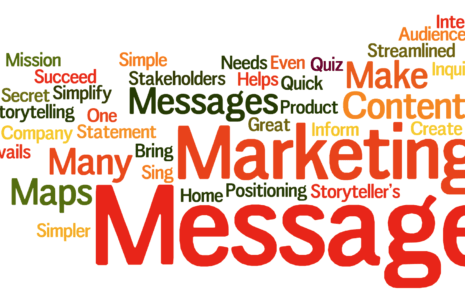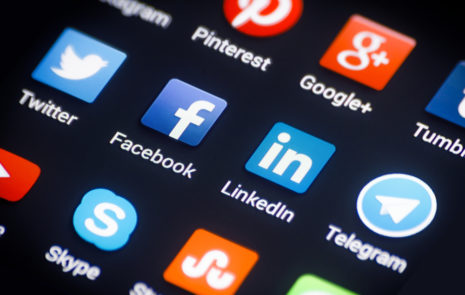
Content Marketing: 4 Looming Questions for Marketers
At Content Marketing World (CMW) 2019, thought leaders raised 4 fundamental questions for marketers about content marketing’s future:
- Are marketers prepared for the end of social media?
- Ready for the seismic shift under way in content marketing: voice first, marketing AI and content saturation?
- Are marketers taking the right approach to persuasion?
- If you use the ‘funnel’ model for marketing, does it mislead you?
CMW produced 151,000 words of content — about 3 novels’ worth, Christopher S. Penn calculated. To boil it all down, let’s address the 4 big questions raised at CMW 2019.
Are marketers prepared for the end of social media?
That big question came from Joe Pulizzi, founder of the Content Marketing Institute.

For marketers, social media is shifting from organic sharing of user-generated content to paid sharing. More and more content is being generated by social media themselves, Joe noted.
Christopher S. Penn sniffed out a future decline of social media by applying artificial intelligence (AI) to web searches, as he noted in a “Social Networks 2020: Where to Invest Time and Resources.” On Sept. 24, Chris will present his findings in a webinar about this study.
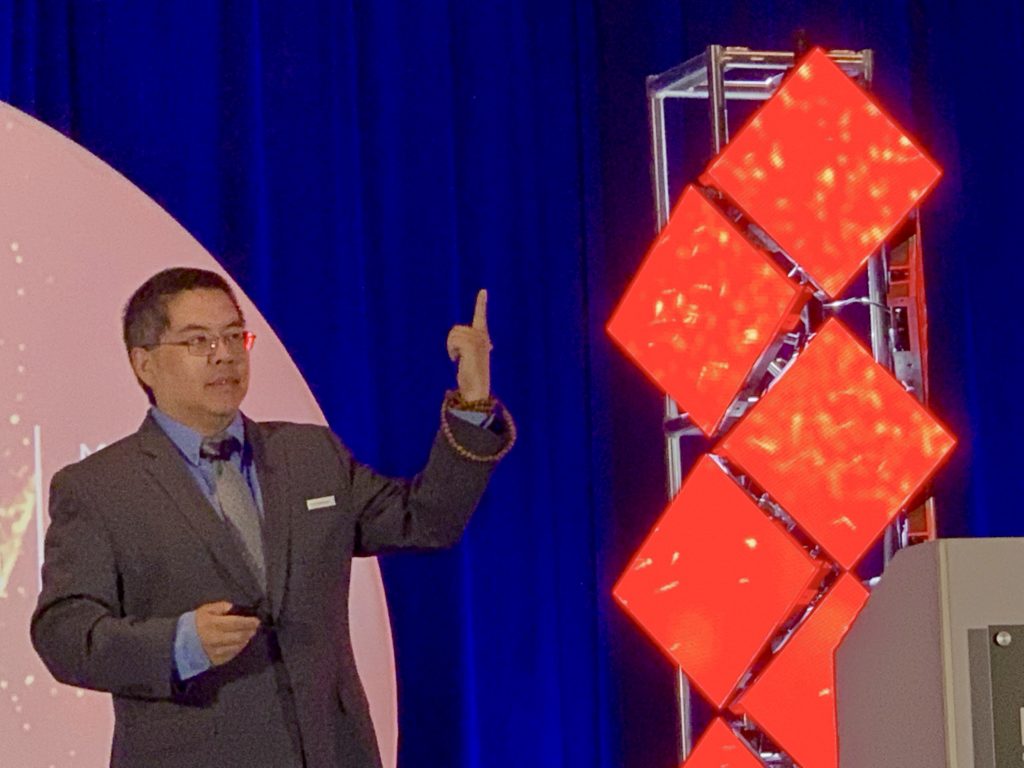
Among its findings:
- More people are searching for information on how to quit Instagram than on how to join (see chart).
- The same is true for social media such as LinkedIn, Facebook, Snapchat and Twitter.
- But YouTube, Slack, Twitch and WhatsApp are still gaining ground.
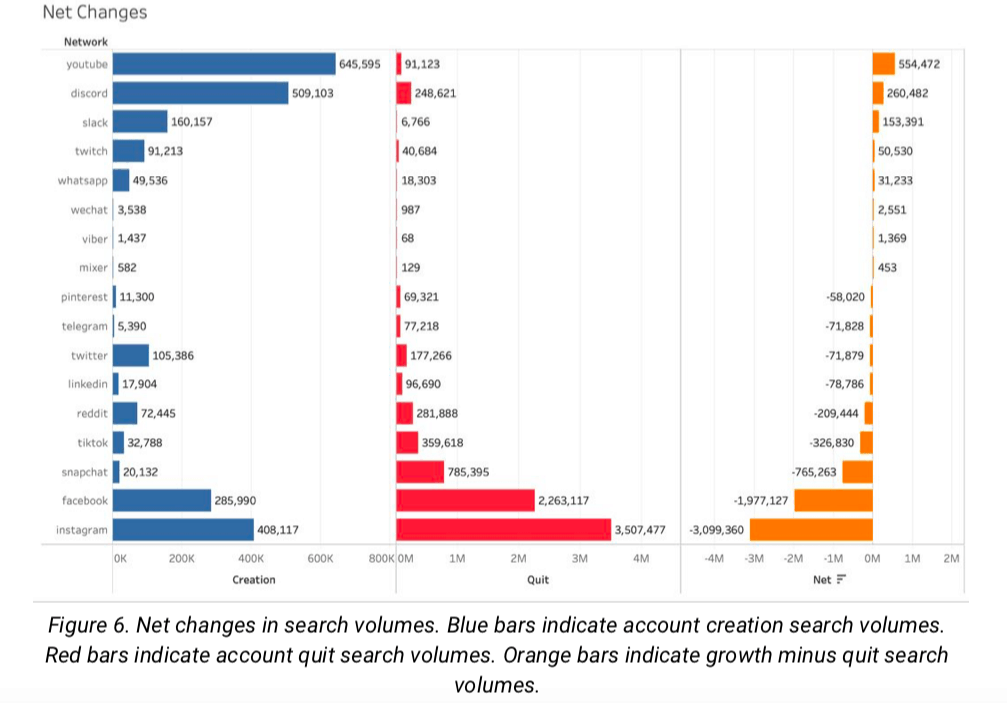
As a result, marketers are shifting from public social media feeds to private user groups within Facebook and LinkedIn.
Marketers also are investing in private channels for their communities, such as Slack, Penn noted. Join Penn’s Slack group on AI and marketing here.
Neil Patel’s historical data confirms that organic social traffic to websites falling. But revenue organic social traffic is falling even faster.
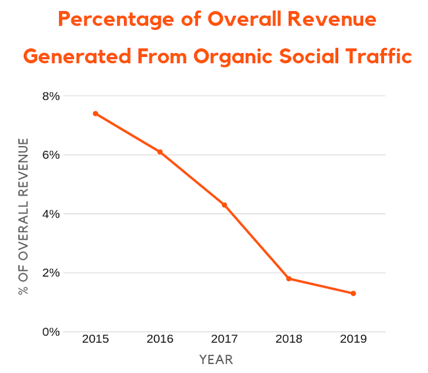
Are marketers ready for the seismic shift under way in content marketing?
This big question came from Heidi Cohen. The combination of these 3 forces – voice, AI and content saturation – is shaking the earth beneath marketers’ feet.
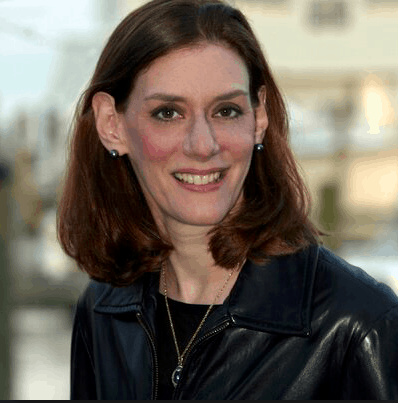
Voice search will replace text search for 3 out of 10 searches as early as 2020, Mitch Joel noted. “Voice is the new smartphone,” he predicts.
Interest in artificial intelligence (AI) for marketing is on the rise. The first Marketing Artificial Intelligence Conference (MAICON) was staged successfully in 2019, and CMW also added an AI track.
On AI, a few marketers are getting ahead of the curve while others lag behind. “Are marketers ready for AI? Is AI ready for marketing?” remain valid questions.
The chronic problem of content oversaturating the market continues to grow, Cohen said. There’s too much noise, and not enough signal that’s relevant to customers.
What Mark Schaefer called content shock back in 2014 promises to become much worse. It will become more and more important to create a content base that towers above others and is highly differentiated.
What should marketers do? Create a playbook for sustainable content marketing that looks like this, Heidi advises:
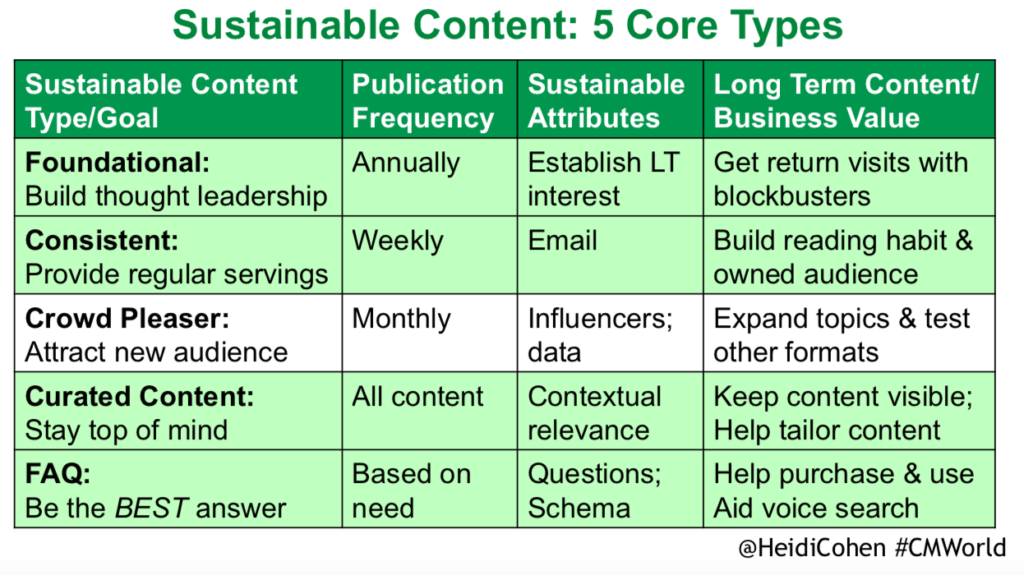
Are marketers taking the right approach to persuasion?
Maybe not.
Shooting the messenger is psychologically true, keynoter Tamsen Webster pointed out.
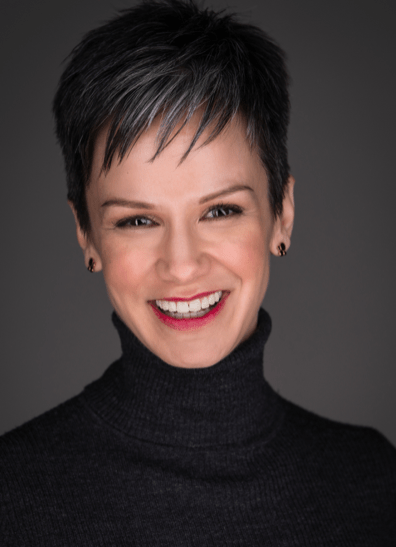
“Don’t try to change what people want and believe. Validate that they are smart, capable and good” to get them to buy into your message.
“Don’t violate what people believe about themselves. When two truths fight, only one can win. People believe their own truth first,” Tamsen warned.
“If people don’t want it, if people don’t believe it, don’t try to sell them on wanting or believing.”
How can marketers get their point across? “Supply a stronger story, consistent with the smart, good, capable person’s beliefs … Use their reasoning to validate your reasoning.”
Some 40% of B2B purchases end up getting second-guessed, Tamsen said. “That’s buyer’s remorse. But there’s no such thing as believers’ remorse.”
If you use the ‘funnel’ model for marketing, does it mislead you?
Andrew Davis traced the roots of the classic marketing funnel back to 1898, when Elias St. Elmo Louis sketched a marketing model of awareness, interest, desire and conviction.
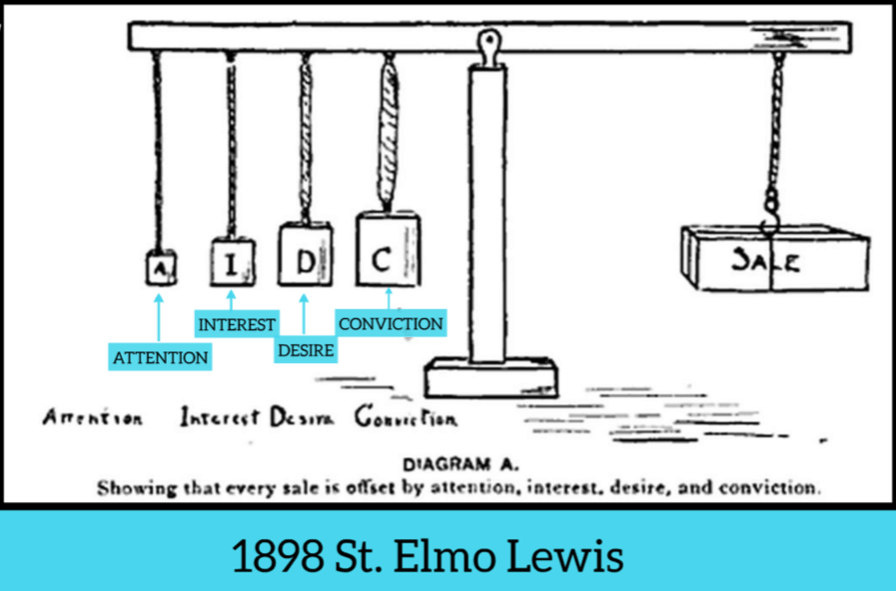
More than a century later, Davis said, the marketing funnel is a problematic mental model.
Why? Because:
- Funnels depend wholly on building awareness.
- A funnel is linear, but buyer’s decision-making processes are circular, more of a loop than a funnel.
- What marketers really need is a repeatable process that builds customer loyalty.
Davis’ answer? See the process as a loop and “Own your loyalty loop. Focus on building experiences versus building awareness.
“Don’t tell people you are different. Show them you are.”

The ideal mental model for marketers is a loyalty loop, Davis said. It’s like a Slinky extending into the future, always finding new moments of commitment and inspiration that move customers forward.
Loyalty Loop Model
Here’s the loyalty loop model Davis sketches, with 6 ideas for how to improve the customer experience from the moment of commitment to the moment of inspiration and back around the loop again.
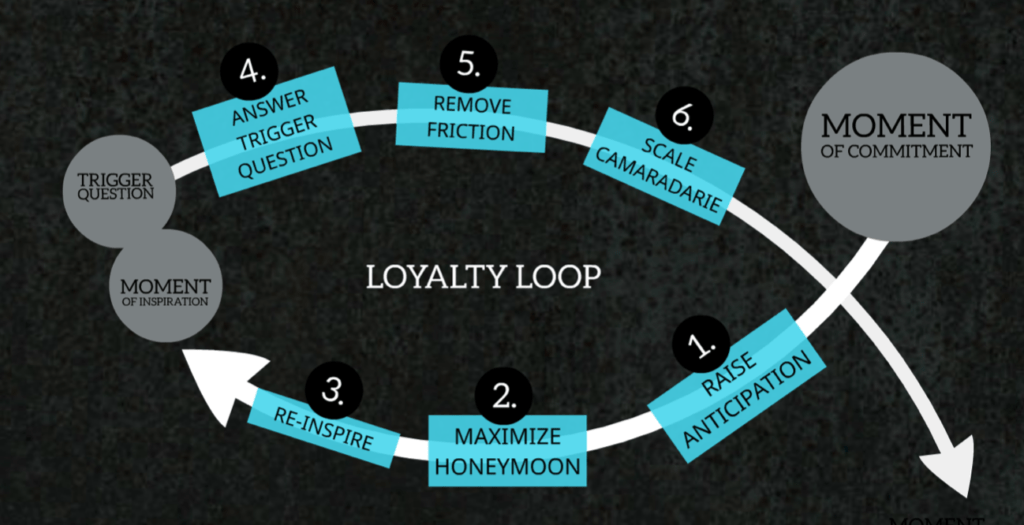
For example, Davis cited a home improvement company named Tulsa Renew that successfully raises customers’ anticipation, first by sending a video proposal.
Once the homeowner signs up for a home improvement project, he or she receives daily video progress reports that show exactly what’s going on the project, day by day. By providing daily reports that keep the customer informed, Tulsa Renew raises anticipation and maximizes the honeymoon with each customer.
That’s how the company lives up to its value proposition, “At Tulsa Renew, we believe that you should know exactly what’s being done to your house – even when you are not at home. Every single day we’re on the job.”
Tulsa Renew crews use a Coach’s Eye camera to make videos simple to record and share (unindexed on YouTube).
What’s the result? Tulsa Renew customers share videos with friends – on average, with 11 others. The payoff: 7 out of the 11 customer referrals turn into new customers!
Different Approach to Marketing
What Davis proposes is a fundamentally different approach to marketing: don’t build business by building awareness.
Instead, deliver a remarkable customer experience that’s so unique it:
- Raises anticipation
- Maximizes the honeymoon time
- Creates new moments of inspiration
- Inspires others to act.
How can marketers raise customer anticipation?
B2B marketers should focus on how to raise customers’ anticipation before:
- A pitch meeting or sales call
- Installing new servers (or equipment)
- Presenting quarterly results or a whitepaper
- Delivering the clam-shell package.
Specific Customer Experience
And marketers should take action to maximize customers’ “after-party glow.” For B2B marketers, design a specific customer experience to happen after:
Want to learn more about the loyalty loop? Andrew’s book The Loyalty Loop will come out in January 2020. I can’t wait to read it!
- A pitch meeting with a new prospect
- Presenting new designs to the executive team
- Surviving their first denial-of-service attack
- Quarterly numbers come in.
CMW crystallized 4 major questions for marketers. We all will need to address 4 looming questions about #contentmarketing in the year ahead:
- Are you prepared for the end of social media?
- Ready for the seismic shift under way in content marketing: voice first, marketing AI and content saturation?
- Are you taking the right approach to persuasion?
- If you use the ‘funnel’ model for marketing, does it mislead you?
Applause to the #CMWorld 2019 team for putting on a great and thoughtful conference!
Content Marketing: 4 Looming Questions for Marketers

